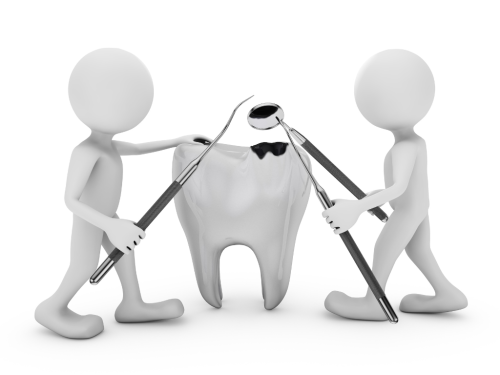Most people are aware that they should floss at least once a day. However, going...
Read More- 1-530-283-2811
- Gregory L Sawyer DDS
- Family Dentistry & Orthodontics
- 2034 E. Main St. Quincy CA 95971

Menu


Tooth decay can only occur if there are acid-producing bacteria around the tooth. All of your teeth are vulnerable to decay, especially those that will not have access to enough fluoride in their enamel in order to fight plaque buildup. Although fluoride can diminish the effects of decay on your teeth, it will not be able to help if the decay has already begun to eat away at them.
Improve Your Dental Hygiene Habits
Bad hygiene habits can lead to plaque and tartar buildup around your teeth, which will accelerate the decaying process. Although your mouth is full of bacteria, it typically has only one type of bacteria can cause tooth decay. Active decay is something that can be present in the mouths of some people. Active decay can be passed on easily to children and loved ones by parents who have it through genetics. Therefore, if you have a family history of having bad teeth, regular dental checkups are always recommended.
How Long Will It Take To See Tooth Decay?
It will take a while for the decay to settle into the enamel. Once the decay has reached the second layer of enamel, it will move faster towards the pulp. Because it houses the nerves as well as the blood supply, this can be detrimental regarding the health of your teeth. The pulp is an important part of the tooth. In fact, the pulp also represents the area where you will feel the most pain, since the decay will begin to eat away at the nerves that are there.
Tooth Decay And The Destruction Of Pulp
While it may take up to 2 to 3 years for decay to reach the enamel, it can get to the pulp in as little as a year. The decay can cause severe damage to most tooth structures within weeks or months once it reaches the dentin. Most forms of decay is the most preventable. This is because it can proceed quite slowly. The bacteria begins as a white spot on the tooth. This is where the enamel starts to dissolve. It is most common in those aged 20-30 years, yet it can affect people of all ages.
Pit Fissures And Tooth Decay
Pit or fissure tooth decay, also known as molar-related cavities, is more severe. It forms in the narrow grooves of the molars that are responsible for chewing. This type of decay can cause more damage to your teeth than smooth decay. Because the grooves are so narrow, regular bushing can make it difficult to clean them. Even if you brush your teeth on a regular basis this type of decay can be difficult to prevent unless you visit the dentist for regular cleanings and checkups.
Why You Need To Avoid Root Decay
Root decay is the last type of decay that can adversely affect your teeth. It starts on the root’s surface. Middle-aged people are more likely to experience root decay. This is the most common in middle-aged people. Root decay is also known as the most severe type of tooth decay and it is difficult to prevent in most cases once it has started. Root decay can literally rot your teeth, so you will need to have the affected teeth extracted if this process cannot be averted early on.
Regular Dental Visits Are Must
Tooth decay should not be laughed at. It can spread quickly and cause more damage to your teeth. You can prevent tooth decay from developing by visiting your dentist regularly for regular cleanings and checkups. Brush your teeth on a regular basis and use Listerine or Scope mouthwash to kill bacteria. Although bacteria is present in every part of your mouth, you can use mouthwashes to eliminate it. You can prevent tooth decay by taking care of your teeth and following the instructions of your dentist. However, these exact instructions based upon the condition of your teeth right now, are not accessible until you schedule your first appointment.
Dr. Sawyer is available to help with any issue related to tooth decay. To schedule an appointment with Dr. Sawyer, call him today to see when his next opening will be.

Learning about your dental health is so important. Set an appointment today to see if I can help you! Call: 530-283-2811
Office Hours:
Tuesday, Wednesday, Thursday, & Friday
11 a.m.-7 p.m.
Evenings & Saturday by Appointment
Address:
2034 E Main St
Quincy, CA 95971
In Business Since 1984
Most people are aware that they should floss at least once a day. However, going...
Read MoreA dental filling is used for resolving or fixing small holes called cavities in teeth....
Read MoreBad teeth are not something you should live with. There are many factors that can...
Read MoreMost of us will develop cavities throughout our life. There are different ways that we...
Read MoreAddress:
2034 E Main St
Quincy, CA 95971
Phone:
(530) 283-2811
Business Hours:
Tuesday, Wednesday, Thursday, Friday:
11 a.m.-7 p.m.